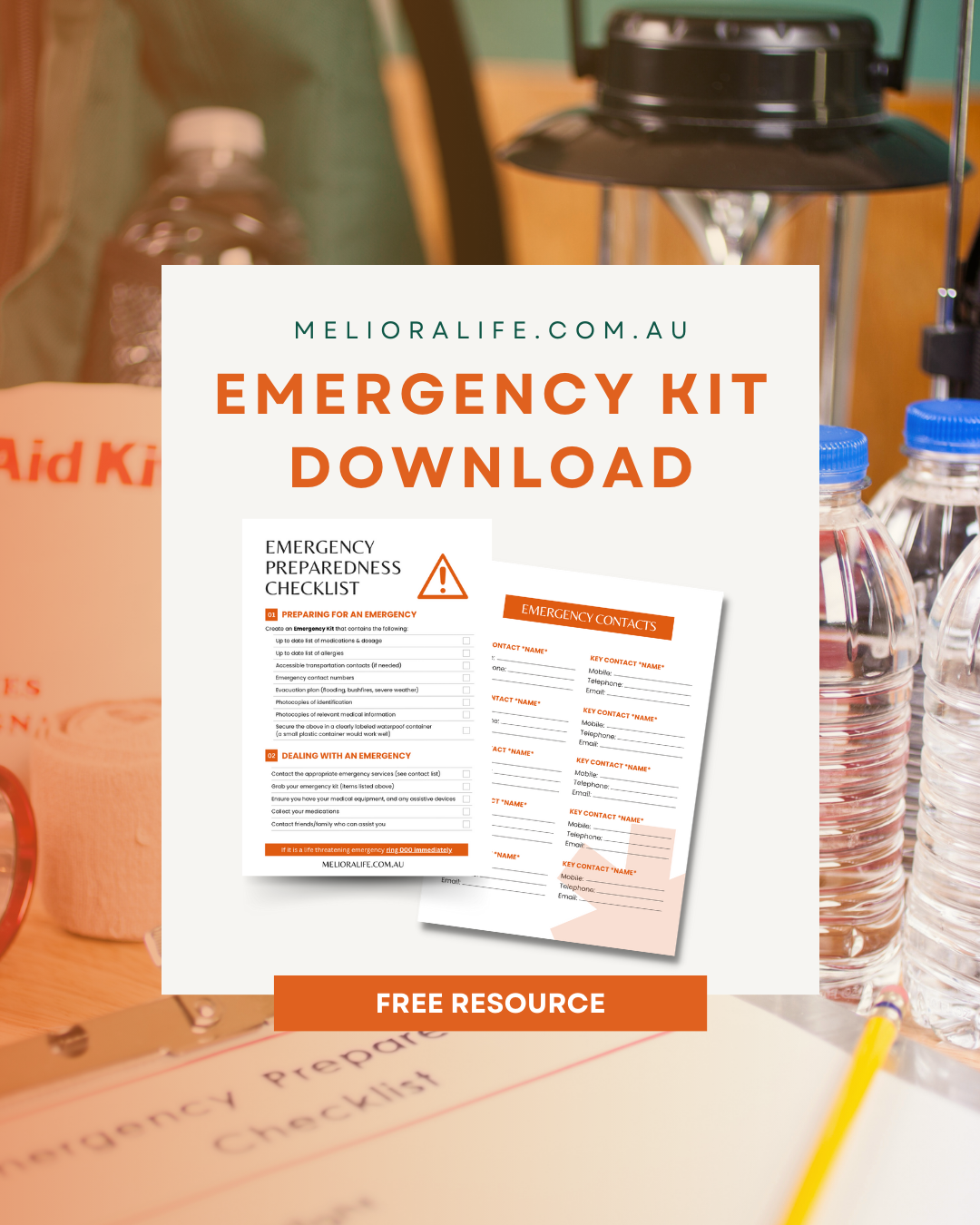Part 1: The Importance of Emergency Preparedness
Emergencies can strike at any time, and being prepared is crucial for everyone, especially for individuals with disabilities. In this two-part blog series, we will delve into the significance of emergency preparedness for NDIS participants. In Part 1, we'll discuss the importance of having a plan and understanding the unique considerations for those with disabilities.
The Need for a Comprehensive Emergency Plan
1. Vulnerabilities of Individuals with Disabilities
People with disabilities often face additional challenges during emergencies. Mobility issues, sensory impairments, or cognitive limitations can complicate evacuation processes and access to necessary resources. A well-thought-out emergency plan tailored to individual needs is vital for ensuring safety and well-being.
2. Personalized Plans for Varied Abilities
Not all disabilities are the same, and a one-size-fits-all approach won't suffice. Individuals should develop personalized emergency plans that consider their specific requirements. This may include accessible transportation, communication devices, medications, and support personnel.
3. Collaboration with Support Networks
Engaging with support networks, including family, friends, caregivers, and community organizations, is important. In times of crisis, having a reliable support system can make a big difference. Chat with those who understand your needs and can offer assistance during emergencies.
4. Access to Essential Supplies
Ensure a stock of essential supplies such as medications, medical equipment, and assistive devices. In times of emergency, access to these items may be limited, so having an emergency supply kit ready can be a lifesaver.
Key Contact Numbers: A Lifeline in Emergencies
1. Emergency Services
The first step in any emergency is to contact the appropriate emergency services. Make sure you know the emergency number for your location (e.g., 000 in Australia) and have it readily accessible.
2. Medical Professionals and Caregivers
Maintain a list of contact numbers for medical professionals, caregivers, and support personnel. This information is crucial for ensuring continuity of care during emergencies.
3. Community Resources and Support Organizations
Research and compile a list of local community resources and disability support organisations. These organisations can assist with emergencies and connect you with valuable resources.
4. Family and Friends/Neighbors
Building a network within your community is invaluable. Share your emergency plan with neighbours and friends, providing them with your contact information and any specific instructions they should be aware of during an emergency.
In Part 2 of this series, we'll explore specific types of emergencies, from natural to personal crises, and outline actionable steps to get prepared. Remember, being proactive in planning for emergencies is a powerful tool for ensuring the safety and well-being of individuals with disabilities.
We’ve created an Emergency Kit Download that you can use to help prepare and plan for an emergency. Click the link below to access the download!

